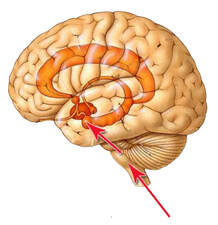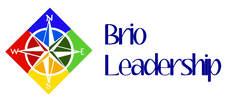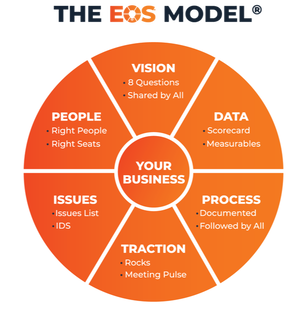 It’s exciting to me when I see my clients reap real, tangible benefits from EOS. I’ve been asking clients in session days lately to note some of the good things that have developed since they implemented the Entrepreneurial Operating System in their business. I’m surprised that even companies that are relatively new in their EOS journey experience positive benefits. Here’s a partial listing that I’ve gathered over the past several weeks of tangible and intangible benefits of implementing the Entrepreneurial Operating System:
0 Comments
Provided by Kristin Robertson  In my practice, I see that the best run and most successful businesses gather a team of Trusted Advisors to guide them as they grow. It would be my pleasure to help you build this team of Trusted Advisors to direct you on your journey. I am a member of Exit Planning Exchange (XPX) Austin, a professional community of trusted advisors that collaborate to help their clients build business value, transfer ownership, and create a legacy of success in their lives and their communities. The members of XPX Austin have been granted membership based on their reputations within the community, their integrity and ability to deliver high quality services. The following is a list of the Top Ten Experts, all of which are represented in XPX Austin, that you need to guide your business to success. 1. Business Operations Coach It is difficult to run a business without a methodology to help you set a vision, execute the vision with discipline and focus, and hold your people accountable to expectations, while also building healthy teams within one’s organization. Real-Life Example After 17 years of growth and success, a business owner realized the company's future growth required a new level of accountability within her organization, including a better way to manage progress toward goals through smarter metrics. This executive’s business adopted the Entrepreneurial Operating System (EOS) to provide the framework for increased growth, greater customer satisfaction and employee retention. The result was a 25% increase in sales and 100% client retention. Signs that you need this expert
2. CPA/Finance/Bookkeeping Every small business needs a CPA to do their taxes. Without this licensed expert to back you up with the IRS, a small business is at risk both financially and legally. Mid-sized businesses additionally need a finance expert to guide them with larger purchases, advanced financial analysis and to provide expertise with mergers and acquisitions. Real-Life Example When she first started her business, a small business operator did the bookkeeping, payroll, and taxes all-by-herself. As her business grew, she knew that she needed to delegate these responsibilities. When she received a threatening letter from the IRS regarding details on her tax return, she immediately contacted a CPA. The CPA recommended a bookkeeping service and a new cloud-based accounting system, successfully resolving the issue with the IRS. This owner’s business is continuing to grow, due in no small part to the time she has now to focus on other parts of the business. Signs that you need this expert
In addition to basic checking and savings account, businesses also need loans and mortgages, credit/debit cards, merchant services, basic investment services such as CDs and other services such as safe deposit boxes. Small Business Loans (SBA) loans are backed by the government and are offered with attractive terms. It's important for any business to have a strong relationship with the appropriate banking professional. Real-Life Example A small business owner needed to invest in several new, highly customized and expensive trucks to serve his growing business. He was able to secure an SBA 7(a) loan to fund his investment in new equipment. Signs that you need this expert Contact a banker when you need:
When you are learning something new, like the Entrepreneurial Operating System (EOS), it can be confusing and overwhelming to learn the right words for the concepts you are implementing. This article is meant to help you learn the 26 important terms of EOS. What follows are the EOS terms, their definitions, my commentary, and a graphic depiction. Soon, you’ll be speaking EOS terms like a professional! Download below:
 As an EOS (Entrepreneurial Operating System) Implementer, I am keenly aware of the impact of making changes in organizational operations. I am concerned about obtaining buy-in for a change from all affected people Because I am so sensitive to human beings’ reactions to change, I have been doing a lot of neuroscience research lately in that area. One of the main things I have learned is this: The human brain is wired to resist change! Instead, the brain wants to run on autopilot, it craves consistency and habits, and views unwanted change as a threat. In my talks and training programs, I explain the brain science behind the human resistance to change. Let us explore four parts of the human brain that impact our reactions to change. They are summarized in the following table, adapted from Wired to Resist: The Brain Science of Why Change Fails and a New Model for Driving Success (2017) by Britt Andreatta. Brain Part, Nickname, and Reaction to Change: Amygdala, Sentry, “I’m freaked out!” Basal Ganglia, Habit Center, “I don’t know what to do!” Habenula, The Scold, “I don’t want to be seen as a failure!” Entorhinal Cortex/Hippocampus, Cartographer, “I’m lost!” Let us walk through each of the brain parts and see how they wire us to actively resist change.  Do personality types affect what roles you excel at as a leader in a smaller business? Absolutely yes! Especially at the owner/CEO/COO level, your personality will affect the role that you should be filling. The Entrepreneurial Operating System or EOS identifies the two important roles that top leaders can fill in a business: a visionary and an integrator. In recent conversations with smaller companies, many people are relieved and happy to understand the difference between these roles. The concept helps them understand how to structure their organization for maximum benefit. Here’s what I’m hearing from frustrated leaders: “That completely explains the friction we’ve been having,” or “Well, that makes sense of what I’m seeing in our company.”  According to a recent New York times article 1, 30% of people report being depressed or anxious during this current Covid-19 pandemic. In my coaching practice, I find that most people are experiencing some level of uneasiness, angst and sadness during this time. Human beings are social animals, so to stay home and isolate goes against the grain. Our brains and bodies are meant to be in connection with others, through physical touch and close proximity. The pandemic is making us do what is unnatural and unhealthy. During this challenging time of isolation and increasing anxiety, it is time to amp up your coping skills. Try these steps to calm yourself. The first one is in the right order – notice your body first – but the others can be done in any sequence: 1. Notice the physical symptoms and breathe, darn it, breathe 2! Your body is an early warning system for your emotions. Notice what happens when you get upset or triggered. I can actually feel a squirt of adrenaline from the adrenal glands in my stomach, and I know that means I am feeling anxious or threatened. Your symptoms could also be tension in the shoulders, feeling redness in your face or neck, a quickened heartbeat or sweaty palms. Notice when this happens, and stop what you are doing. Breathe! Breathe from your stomach and feel your breath going all the way down to your feet. This will ground you in your body, and from there you can respond more maturely rather than react without thinking.  We are almost six months into a pandemic that has radically changed our lives. We are working from home, communicating electronically and meeting virtually. Despite these cataclysmic changes, leaders need to remain calm, be emotionally available to their teams and inspire others to sustain high performance standards. This is why the concept of mindfulness, which helps not only your team but yourself too, remains an important tool for leaders, even in these unprecedented times. We know that the most highly effective leaders practice a high degree of mindfulness. Mindfulness is the ability to be fully present in the moment, observing both your own thoughts/feelings and what is going on around you. Mindfulness is important to leaders because they must be aware of both what’s going on inside them (their thoughts, reactions, emotions and moods) and what’s happening outside them in their teams, in their organizations, with their stakeholders and within the larger society. If leaders are unaware of any of these dynamics, they are not able to manage either themselves or their organizations. How can a leader increase his or her mindfulness? In this unprecedented time of COVID-19 and shelter-in-place mandates, we are living through a landmark event that we will all remember for decades to come. In my conversations with clients and colleagues who are fortunate to be salaried and still employed, it seems that most business people are either highly stressed with the demands of the crisis or bored with not enough to do. And, many people are lonely because of the inability to get out and socialize during these times. We are also finding a good amount of free time on our hands. Without the daily commute and the distractions of the office, we find several more hours a day to fill. It’s important to create a schedule or at least a checklist of daily activities that you can commit to. I’d like to provide some suggestions for self-care activities for you to consider during this uncertain time:
o Your Brain at Work by David Rock o No Ego by Cy Wakeman o Humble Inquiry by Edgar Schein
Lastly, Brio Leadership is offering pro bono, laser coaching sessions to anyone who needs them. These laser coaching sessions are focused and short, no more than 30 minutes. The client comes to the coach with a specific problem, like how do I keep a brave face for my team when I'm falling apart inside during this crisis and we work on it immediately and with laser-like intensity. And, it's OK to cry in these sessions. Perhaps you'd like to try one out? If so, please reach out to me at [email protected].  Are you a member or leader of a team? In the workplace, a team could be comprised of the executive officers of a company, a departmental leadership team, a special project team or any number of other teams that come together to accomplish shared goals. Teams are everywhere in organizational life today. And yet, only 10% of teams rate themselves as high performing. There is an urgent need for a better understanding of how teams can function at their best, and a growing awareness of how team coaching can provide that. Team coaching is a powerful tool to drive business results. What is team coaching? In team coaching, a certified team coach facilitates and coaches the team as a system or entity unto itself. Each team has its own unique and special personality, reflecting the contributions of the individuals on the team and the environment in which it operates. A team coach understands the system dynamics of a team and can help the team address issues that prevent it from achieving high productivity.  In Hans Christian Andersen’s 19th century fable “The Emperor's New Clothes”, the only citizen of the kingdom who tells the truth is a young boy who blurts out, “the emperor is naked!” Everyone else defers to the status of the ruler, flattering him about his new “outfit”, which is, in fact, his birthday suit (nakedness). Cute story, right? The reason the fable has survived as long as it has is due to its inherent truth. Power and rank often diminish our powers of perception, perspective and empathy, especially specifically when few people have the guts to speak the truth to power. This is the reason why executive coaching can be so impactful. The executive coach, as a trusted and equal partner to the executive, can say things that others might not. That is not to say that the coach/client relationship is adversarial. To the contrary, the coaching relationship is one that involves trust, confidentiality and openness. Are you wondering if you could benefit from executive coaching? Here are five top reasons that you need it: |
From the desk of
|
||||||
Our services |
Our Company |


 RSS Feed
RSS Feed

